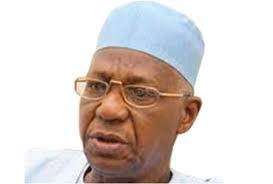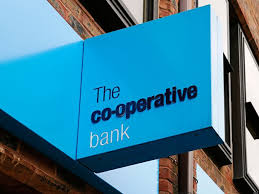In furtherance of its efforts to ensure that the provisions of the Money Laundering Act are fully complied with in the nation’s public finance system, Nigerian Financial and Intelligence Unit (NFIU) on Thursday announced a total ban on cash withdrawal from Public Accounts and payment of Estacode and travel allowances in cash and criminalized it.
The ban, which takes effect from March 1, 2023, is expected to further enhance the current moves by the monetary authorities to transform the country into a cashless economy.
According to the NFIU, Section 2 of the MLPPA, 2022 restricts cash payments of a sum exceeding N5 million (or its equivalent) for individuals, and N10 million or its equivalent for a body corporate.
Section 19 of the MLPPA, 2022 imposes a fine of at least N10 Million or imprisonment for a term of at least three years (or both), in the case of individuals; and a fine of N25 Million in the case of a body corporate.
Section 26 of POCA, 2022 makes provision for the seizure and detention of cash over the prescribed amount under the law.
The NFIU’s Chief Executive Officer, Mr. Hamman Tukur, who announced the latest measure, said all government transactions as from March 1 would be fully automated in line with the apex bank’s monetary policy.
According to him, the application of the guidelines covers all foreign missions operating in Nigeria, accounts of all development partner-institutions, the accounts of all instituted funds in form of independent funds to be operated as mutual funds such as insurance funds, cooperative funds, and brokerages funds.
Others where the guidelines are applicable include political party funds or pressure group/union funds, once the funds are designated to exist as funds or to operate independently for management and/or investment.
He explained: “These guidelines supersede and repeal the N500, 000 cash withdrawal limit of local government funds and also, since it is for criminal purpose, supersedes the CBN’s regulation on cash withdrawal limit with regards to public accounts and instituted funds.
“Defaulters who withdraw cash from public accounts risk collaborative investigation by the Nigeria Financial Intelligence Unit (NFIU), Economic and Financial Crimes Commission (EFCC) and Independent Corrupt Practices Commission (ICPC)”, the NFIU boss warned.
On likely waivers above the threshold, he pointed out that only the President can give a waiver for any cash above the approved daily threshold to be withdrawn for emergency and directed federal, state and local governments to put necessary machinery in place towards a smooth implementation of the new policy.
Tukur disclosed that from 2015 to 2022, state governments had withdrawn a total of N701 billion cash above the N225 billion withdrawn by the Federal Government and N156 billion withdrawn by the local governments.
He clarified that under Section 3(1) (A-S) and Section 23 (2) (A) of the NFIU Act 2018, and other provisions under the Money Laundering (Prevention and Prohibition) Act, 2022, the NFIU was duty-bound to monitor and implement the guidelines.
The NFIU chief expatiated: “The cash withdrawals directly contravene the provisions of the MLPPA, 2022 and the Proceeds of Crime (Recovery and Management) Act, 2022 (POCA, 2022) which provide the legal framework setting limitations on cash transactions and sanctions for infringement of the provisions.
“The breach of this particular provision became so rampant because there are heavy withdrawals of cash from public accounts necessitated by inflation and changes in the economy, and also due to payment for overseas travels in terms of estacode and other overseas allowances.
“By the principles of Section 2 (Cash Transaction Outside Financial Institutions Limit), and Section 13 (Use Of New Products, Business Practices And New Technologies) of the MLPPA, 2022, cash withdrawals must be prohibited in order to mitigate the risk of exposure of public servants to these crimes and protect the financial system from continuous abuse.
“In the meantime, this is not only indicting chief accounting officers of Ministries Departments and Agencies (MDAs) but in the context of Nigeria’s democracy, it gives room for adversaries, political opponents and antagonists to exploit the law against their competitors, or to their individual political advantage”, Tukur added.
He restated the NFIU’s support for the CBN circular on cash withdrawal limit, which is in harmony with the law, provided in Section 2 of MLPPA, 2022, adding that the newly issued guideline will support the efforts of the apex bank
Tukur further stressed that the new guidelines were meant to enforce the provisions of Sections 2 and 13 of MLPPA, 2022, to discontinue cash withdrawal from public accounts and establish clear audit trail, and mitigate corruption and other vices in public expenditure.
In addition, he stressed that the guidelines were also aimed at supporting law enforcement and the entire criminal justice system by strengthening transparency in investigation.




